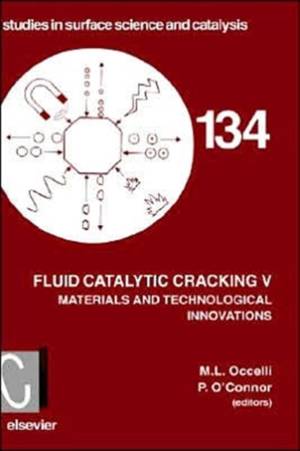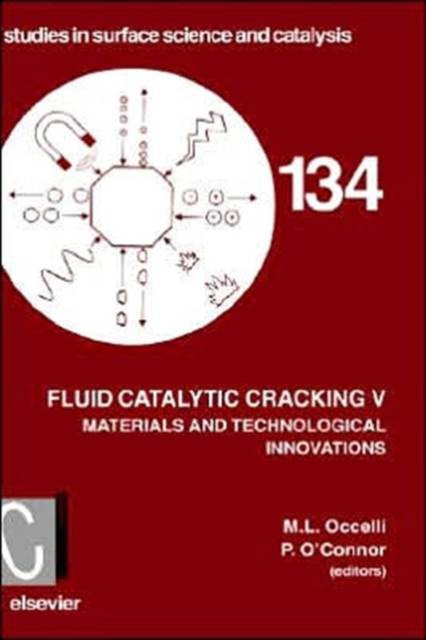
- Retrait gratuit dans votre magasin Club
- 7.000.000 titres dans notre catalogue
- Payer en toute sécurité
- Toujours un magasin près de chez vous
- Retrait gratuit dans votre magasin Club
- 7.000.0000 titres dans notre catalogue
- Payer en toute sécurité
- Toujours un magasin près de chez vous
Description
Catalyst production for the transformation of crudes into gasoline and other fuel products is a billion dollar/year business and fluid cracking catalysts (FCCs) represent almost half of the refinery catalyst market. During the cracking reactions, the FCC surface is contaminated by metals (Ni, V, Fe, Cu, Na) and by coke deposition. As a result, the catalyst activity and product selectivity is reduced to unacceptable levels thus forcing refiners to replace part of the recirculating equilibrium FCC inventory with fresh FCC to compensate for losses in catalyst performance. About 1,100 tons/day of FCC are used worldwide in over 200 fluid cracking catalyst units (FCCUs). It is for these reasons that refiners' interest in FCC research has remained high through the years almost independantly, of crude oil prices. However, recent oil company mergers and the dissolution of research laboratories, have drastically decreased the number of researchers involved in petroleum refining research projects; as a result the emphasis of research has shifted from new materials to process improvements and this trend is clearly reflected in the type of papers contained in this volume. Modern spectroscopic techniques continue to be essential in the understanding of catalyst performance and several chapters in the book describe the use of 27Al, 29Si and 13C NMR to study variation in FCC acidity during aging and coke deposition. In addition several chapters have been dedicated to the modeling of FCC deactivation, and to the understanding of contact times on FCC performance. Refiners efforts to conform with environmental regulations are reflected in chapters dealing with sulfur removal, metals contaminants and olefin generation.
Spécifications
Parties prenantes
- Auteur(s) :
- Editeur:
Contenu
- Nombre de pages :
- 356
- Langue:
- Anglais
- Collection :
- Tome:
- n° 134
Caractéristiques
- EAN:
- 9780444504753
- Date de parution :
- 27-04-01
- Format:
- Livre relié
- Format numérique:
- Genaaid
- Dimensions :
- 156 mm x 234 mm
- Poids :
- 671 g

Les avis
Nous publions uniquement les avis qui respectent les conditions requises. Consultez nos conditions pour les avis.






